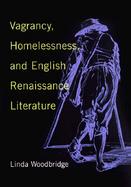Vagrancy, Homelessness, and English Renaissance Literature
- List Price: $45.00
- Binding: Hardcover
- Publisher: Univ of Illinois Pr
- Publish date: 05/01/2001
Looking at texts such as Thomas Harman's influential Caveat for Common Cursetors, Vulgarly Called Vagabonds, Till Eulenspiegel's A Man Called Howlglas, and Walter Smith's Twelve Merry Jests of the Widow Edith, Woodbridge identifies a well-established literary tradition of treating vagrants as comic figures. This literary practice, she maintains, has informed both the legal and the historical treatment of vagrancy, erasing pity and compassion for the homeless by depicting them as robust, resourceful, conniving tricksters. Her study culminates in a close look at one literary work that does invoke compassion for the homeless, placeless poor: Shakespeare's King Lear.
| Seller | Condition | Comments | Price |
|
Ergodebooks
|
Good |
$41.02
|


